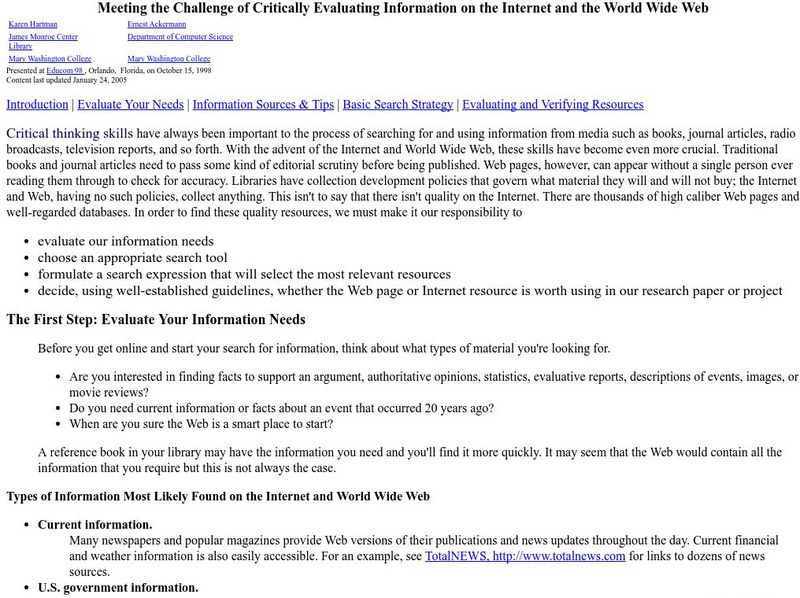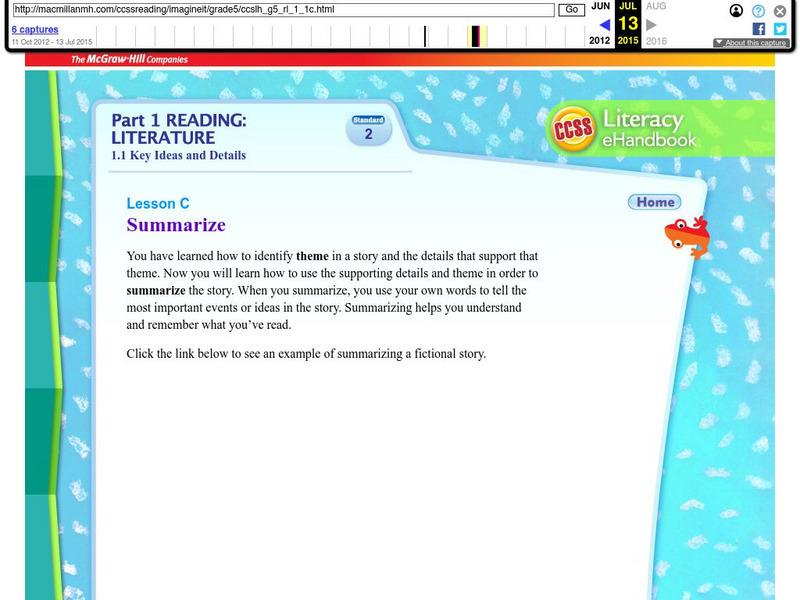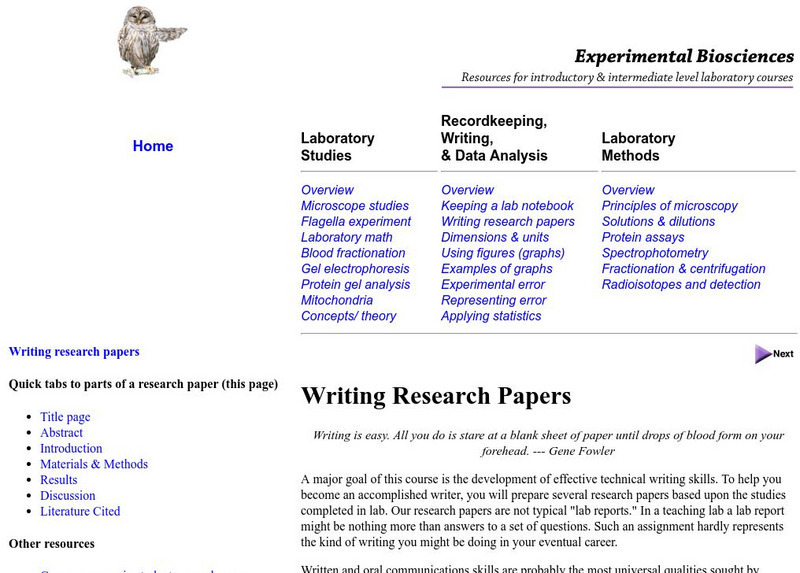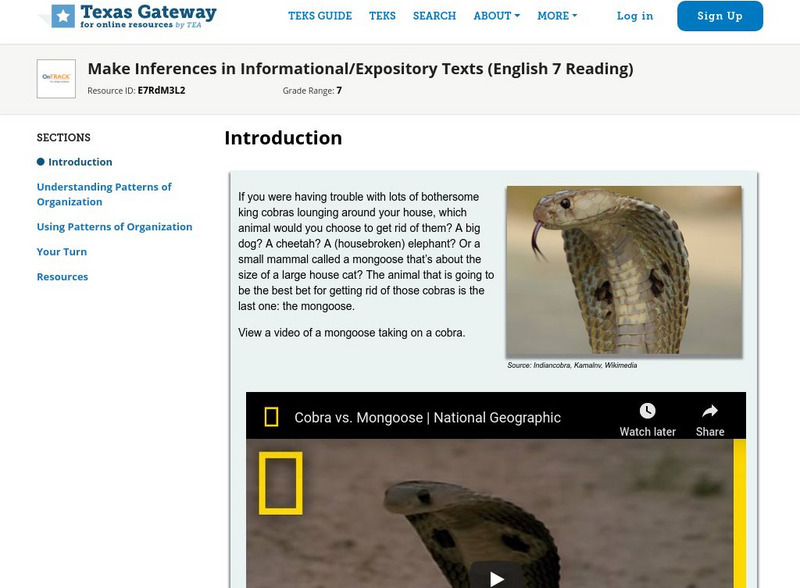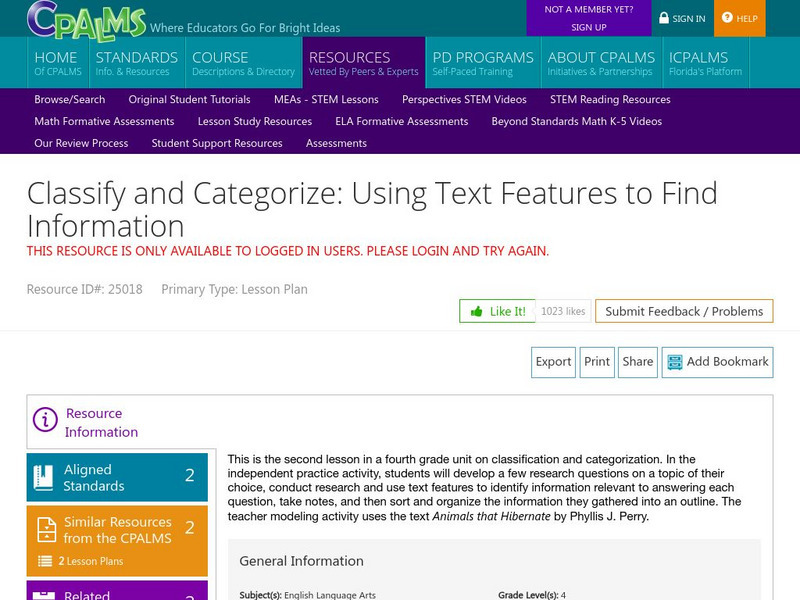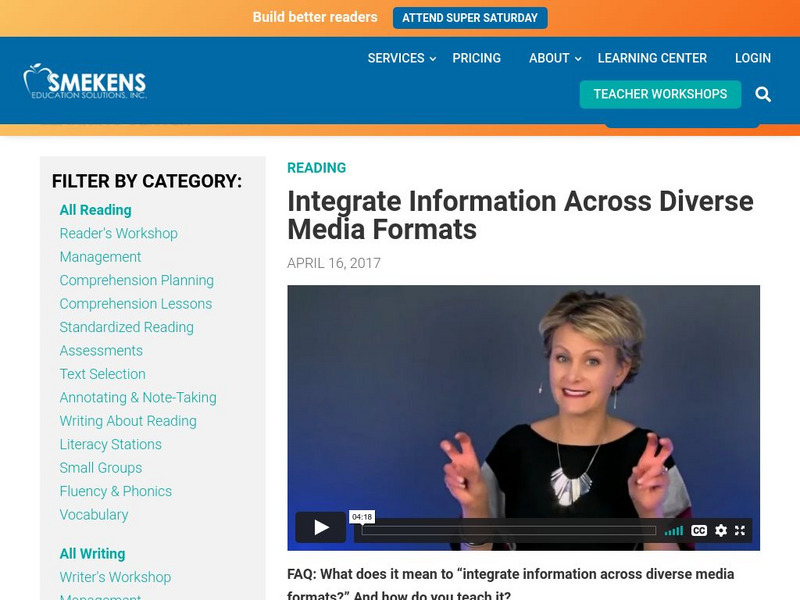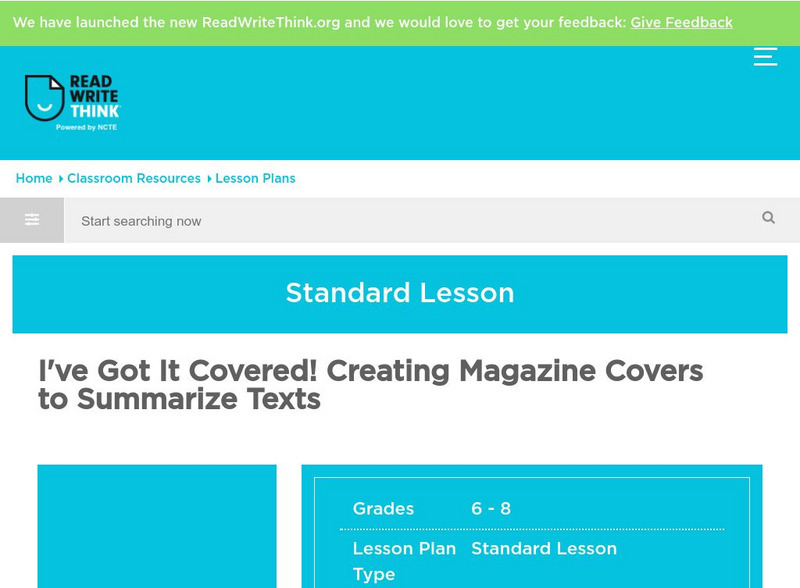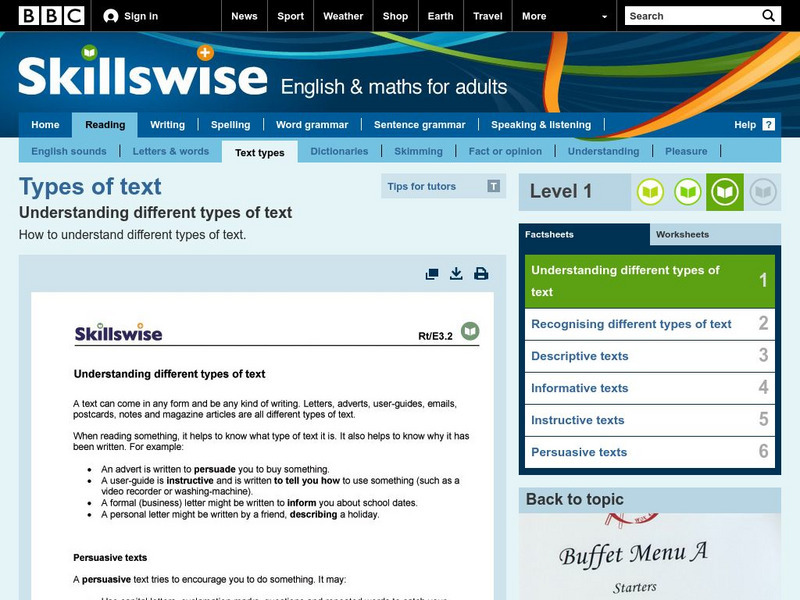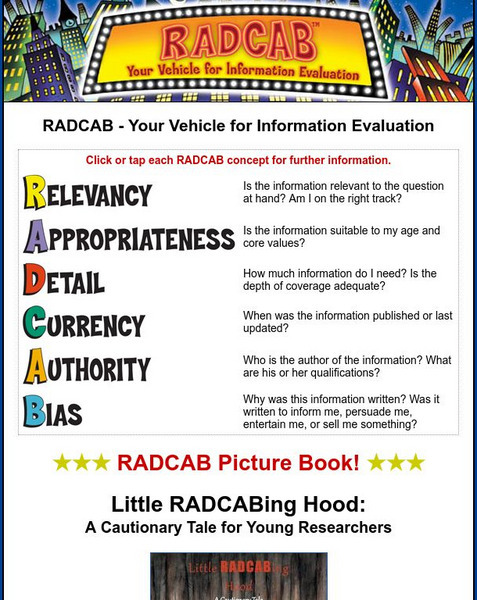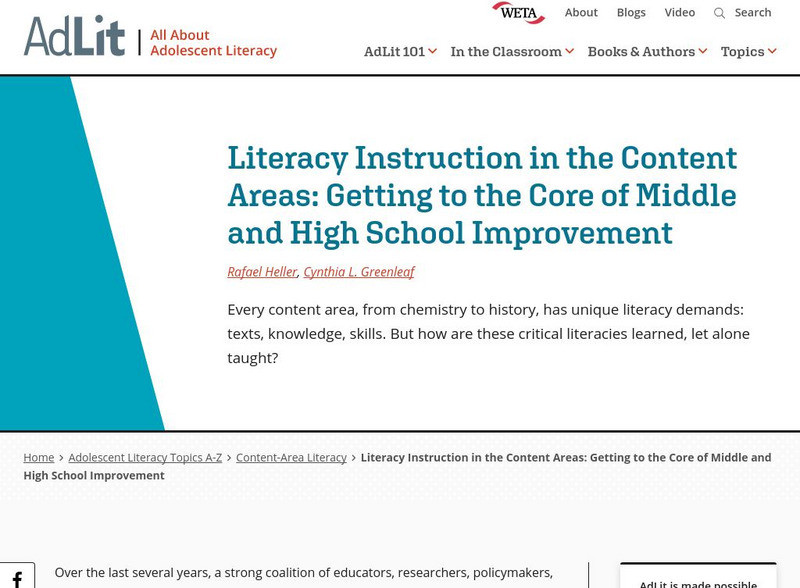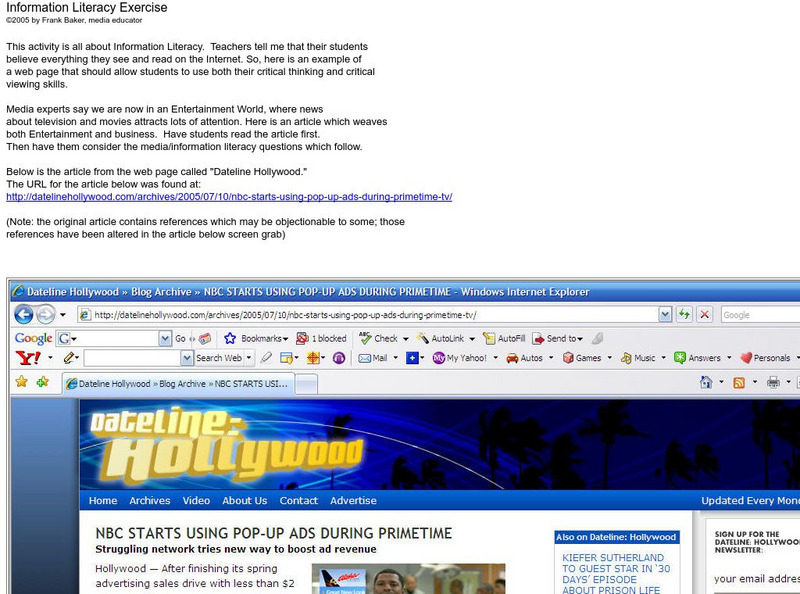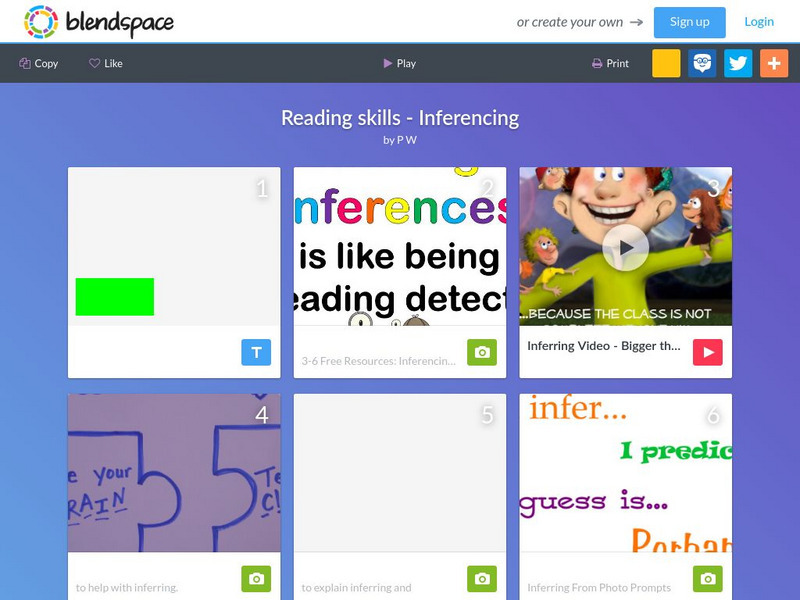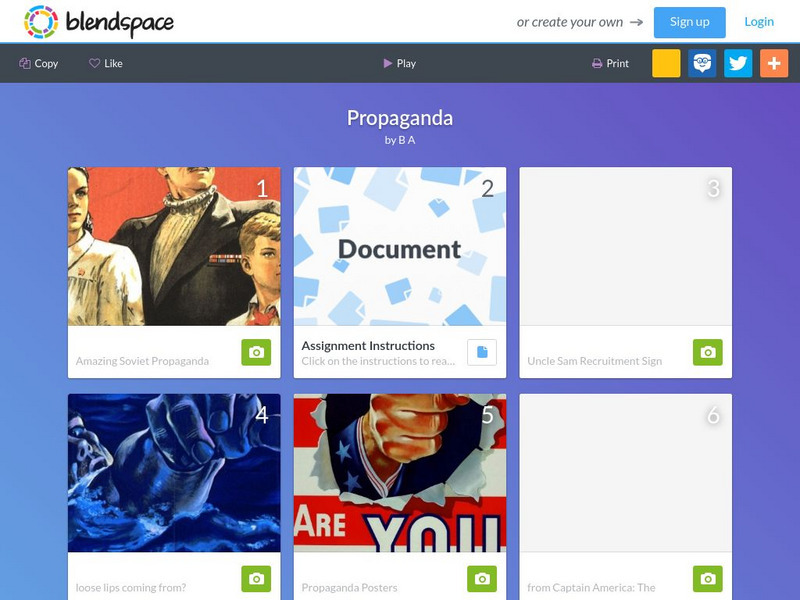Education Development Center
Tv411: Reading: Parts of a Newspaper
A series of three activities help readers become familiar with parts of a newspaper, from sections to headlines and captions.
Other
Webliminal: Critically Evaluating Information on the Internet
This site gives excellent information on why it's important to evaluate the content of everything you find in cyberspace, and also tells you how to do so. It also contains information about using search engines effectively and how to...
Other
Center for Media Literacy: What Is "Critical" Viewing?
Understand the term "critical viewing" as it relates to visual literacy. Learn how to assess the media around you in order to become more knowledgeable and not easily manipulated by what you see.
Curated OER
Mc Graw Hill: Part 1 Reading: Literature: Summarize
Summarizing is a key skill needed in reading comprehension. This page describes how to summarize main ideas in a text. Click on Model button for a model with explanation and then click on Practice (Bottom Right)
Rice University
Rice University: Writing Research Papers
This site presents information about the necessary parts of a scientific research report. It also contains a sample abstract and introduction.
Texas Education Agency
Texas Gateway: Make Inferences in Informational/expository Texts
[Accessible by TX Educators. Free Registration/Login Required] Use different organizational patterns as guides for summarizing and forming an overview of different kinds of expository text while distinguishing factual claims from...
CommonLit
Common Lit: Ataka
CommonLit.org is a wonderful resource to use in a Language Arts classroom. Each story or article is accompanied by guided reading questions, assessment questions, and discussion questions. In addition, students can click on words to see...
CPALMS
Cpalms: Classify and Categorize: Using Text Features to Find Information
[Free Registration/Login Required] Students will develop research questions, classify information into an outline form, and use the features of nonfiction writing to identify information relevant to a research question.
Other
Smekens: Integrate Information Across Diverse Media Formats
Read about strategies to help students integrate information across diverse media formats. Includes video. [4:18]
ReadWriteThink
Read Write Think: Creating Magazine Covers to Summarize Texts
In this lesson, students will examine the ways in which a magazine cover's headlines and graphics express the main ideas of its articles. They will then use an interactive tool to create covers that summarize chapters of informational...
BBC
Bbc: Skillswise: Types of Texts Fact Sheets
Six printable fact sheets on how to understand and recognize different types of text including descriptive, informative, instructive, and persuasive.
University of Victoria (Canada)
Study Zone: From Carrots to Renovations: Reading Comprehension
A reading passage with five multiple-choice questions to assess comprehension.
Other
Radcab: Your Vehicle for Information Evaluation
How do you know you are using a trustworthy source when writing a research paper? Use this acronym for easy questions to ask yourself to make sure you have a reliable source. Click on each one for further details.
Other
Dade Schools: John Ferguson: Informational Text Features
A table explaining different text features including graphics, visuals, and sections found in text.
Alabama Learning Exchange
Alex: Movie Madness
This language arts projects motivates students through being a movie-based project. This instructional activity will have a duration of five days. The students will view a movie of their choice and analyze the movie to complete a chart...
Alabama Learning Exchange
Alex: Whose Voice Guides Your Choice?
In this one-two week unit, students explore the role media has in influencing public opinion. Students analyze advertising in print, video, and online formats. An optional visit to the Museum of Television and Radio via distance learning...
AdLit
Ad lit.org: Literacy Instruction in the Content Areas: The Core of Improvement
Every content area, from chemistry to history, has unique literacy demands: texts, knowledge, skills. But how are these critical literacies learned, let alone taught?
Other
The Topic: Charts and Graphs
Brief descriptions of charts and graphs, followed by links to larger sites on the same subject.
Other
Learning Enrichment:reading Skills in the Social Studies
Discussion of the critical reading skills needed in Social Studies, although the skills discussed can apply to a variety of areas. This is part of a larger site containing numerous lesson plans for Social Studies, and this page is really...
Other
Frank Baker: Information Literacy Exercise
Using an article from Dateline Hollywood, this lesson explores a media message and examines its content.
Science Education Resource Center at Carleton College
Serc: Why Should You Be Scientifically Literate?
In this lesson, students read, discuss, and analyze an article about the importance of scientific literacy, and develop an appreciation of the role science plays in their own lives.
TES Global
Blendspace: Reading Skills Inferencing
A twelve-part learning module with links to texts, images, and videos with information and examples of how to make inferences.
TES Global
Blendspace: Propaganda
A twelve-part learning module with links to images that demonstrate various types of propaganda.
TES Global
Blendspace: Infographics
A six-part learning module with links to images, a text, a video, and websites about infographics and how to design effective infographics.



